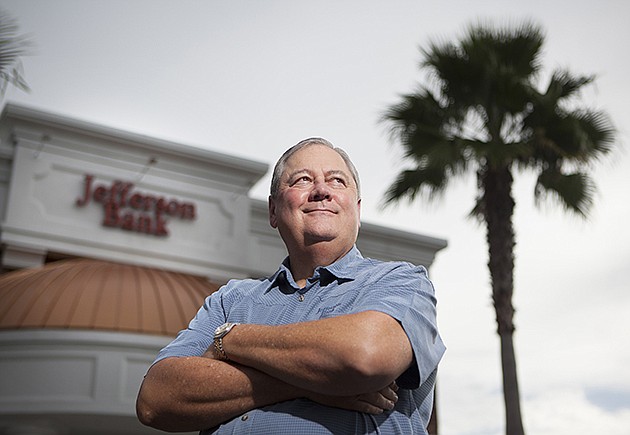- December 22, 2024
-
-
Loading

Loading

The main phone numbers at three of the four Patriot Bank locations, with branches in Pasco and Pinellas counties, end in 1776.
The reference to the year of the Declaration of Independence is a simple move, Patriot President and CEO David Key says. But it's also symbolic of a three-year movement at the bank, founded in 2004, to restore some apple pie, American-style pride to its approach with customers. Nowhere is that clearer than in service charges on deposit accounts. Those are fees, loathed by consumers nationwide, that became a touchstone of the financial crisis when most banks began to seek anyway possible to make money.
Trinity-based Patriot, says Key, has spent a considerable amount of time and money on the opposite approach after a few years of escalating fees. It shows in the data. The lender posted the largest drop (55.95%) in service charges on deposit accounts among all 40 Gulf Coast-based community banks in the second quarter, according to Federal Deposit Insurance Corp. data. It went from $84,000 in 2013 to $37,000.
“We modified our old policy to be more customer-friendly,” says Key. “We are taking a contrarian approach. We are not looking to grow our net interest margin on the backs of our customers.”
A total of 14 other Gulf Coast community banks reported decreases in service charges on deposit accounts in the second quarter, FDIC data show. A similar decrease is in the works nationwide. For example, deposit-account fees fell to 14.1% of all banks' total non-interest income in 2013, states FDIC data cited by the Wall Street Journal. That's the lowest level since 1942.
Key says he's cognizant of the fact that sometimes fees, such as charges for overdrafts, protect a bank against consumers who might take advantage of lax rules. That's why some fees remain in place at Patriot Bank. But Key also says he doesn't want the bank to become a place where a $5 overdraft is a $35 penalty.
On the flip side of Patriot Bank, 10 Gulf Coast community banks posted increases of more than 20% in service charges on deposit accounts in the second quarter, FDIC data show. Bankers at some of those lenders, including St. Petersburg-based C1 Bank and Oldsmar-based Jefferson Bank of Florida, say the increases stem from a higher volume. “We haven't increased fees,” says Jefferson Bank Chairman and CEO Robert McGivney. “It's just that we have more deposits.”
Executives at the bank with the largest quarterly percentage gain in service charges on deposit accounts on the Gulf Coast, Fort Myers-based Edison National Bank, also cite increased volume. Service charges at Edison rose 67.38% in the second quarter, from $141,000 in 2013 to $236,000.
“We are constantly looking at our fees,” says Edison President Robbie Roepstorff, who runs the $248.5 million asset bank with her husband, Geoffrey Roepstorff. “Was (a raise in fees) intentional? No. There's definitely been some adjustments, but nothing out of the ordinary.”
The Roepstorffs, named Bankers of the Year in 2010 by the Florida Bankers Association, say they are traditional bankers, with a focus on community support and relationship banking. Robbie Roepstorff says the bank also strives to keep costs down and put resources into products and customer service.
“We are always looking at operating expenses,” says Robbie Roepstorff. “We really are quite frugal. We look at every light we have on.”
Follow Mark Gordon on Twitter @markigordon